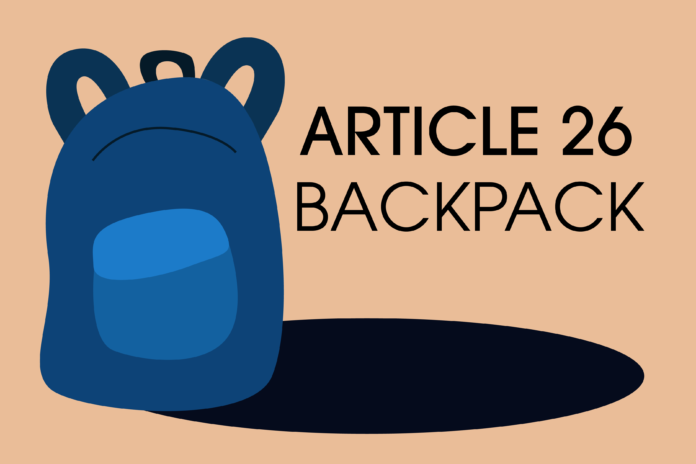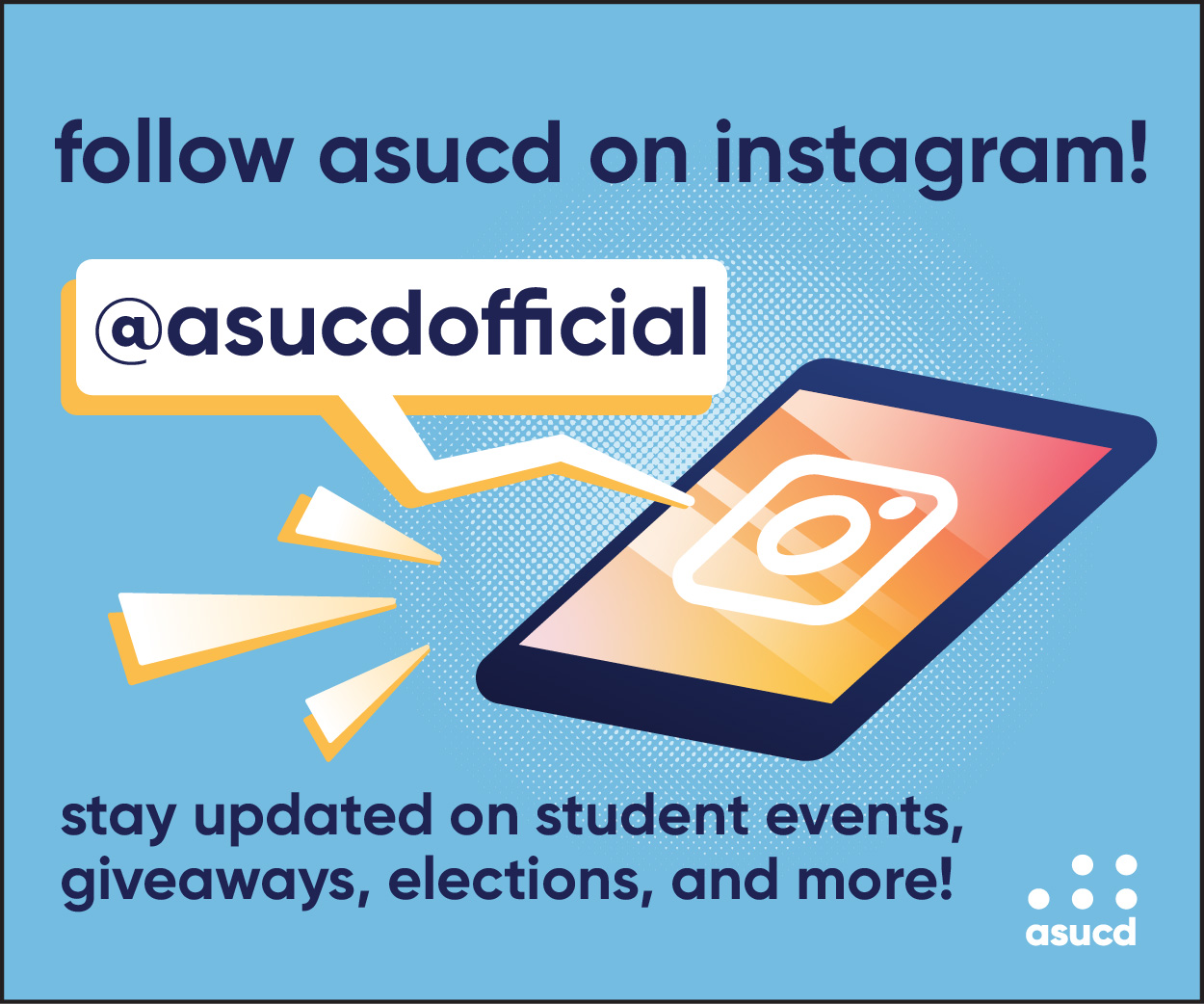Backpack aims to provide refugee students and those from areas of conflict a secure location to store information and documents
By SIMRAN KALKAT — features@theaggie.org
Many students at UC Davis may take access to school as well as education materials and documents for granted, but for refugee and at-risk students, accessing schoolwork can be a challenge.
Article 26 Backpack, commonly referred to as Backpack, is a free cloud-based universal and secure tool for uploading and storing important educational materials and documents created at UC Davis. Students can use Backpack to upload their CVs, resumes, cover letters and other important education-related documents. Backpack is also available in six languages (English, French, Spanish, Arabic, Dari and Farsi), which makes it especially helpful for international students.
Michaela Krulee, a fourth-year political science-public service and economics double major as well as a lead intern at Article 26 Backpack, describes the various teams and projects Backpack operates.
“Article 26 Backpack was created in 2016, as a way to help Syrian students and young people who had fled the war to protect their important educational and career documents, allowing them to connect, or reconnect, with universities, employers or scholarship agencies wherever they were,” Krulee said via email.
The Backpack team has been hosting workshops and information sessions to enroll students, particularly those with a need for Backpack. They partner with various organizations and non-governmental organizations (NGOs) to connect with students and individuals all over the world and enroll refugees and displaced peoples in Backpack.
When the Taliban took over Afghanistan this summer, the Backpack team was ready to respond to the crisis. Kiana Alirezaie, a fourth-year international relations major and an intern on Backpack’s Afghanistan team, worked closely on this new effort.
“When the Taliban took over, that was a big thing for us,” Alirezaie said. “We did a lot of translation work. I speak Farsi [and] my team lead spoke Dari which is what Afghans speak, so we did a lot of translating materials and documents.”
Alirezaie and the team spent a lot of the late summer of 2021 reaching out to Afghan organizations and getting active on social media to raise awareness about Backpack and reach Afghan students and refugees who needed a safe place to store their educational materials.
Getting these students access to Backpack was an important step in helping to make sure their documents and materials could remain secure during a tumultuous period in their lives. During the Taliban’s takeover, Alirezaie said that she noticed a surge of students who signed up for Backpack.
The Backpack team is currently reaching out to and working with other organizations around the world to make Backpack accessible to students in other nations.
“We are incredibly excited to be partnering with a Rwandan-based NGO called Kepler in order to enroll Burundian and Congolese refugees and other displaced people in Backpack,” Krulee said via email. “This collaboration was made possible through support from the Mastercard Foundation.”
As the lead intern at Backpack, Krulee oversees the ongoing projects and supports the various teams at Backpack.
“We currently have teams working in Rwanda, Hong Kong, Burma, Colombia, Afghanistan, the Arab World and most recently domestically in California with AB 540/DACA holders,” Krulee said via email.
The Mochila team at Backpack works with Deferred Action for Childhood Arrivals (DACA) recipients and AB 540 students. Sarahi Nunez, a fourth-year international relations and Spanish double major as well as an intern on the Mochila team, discussed the importance of the Backpack, particularly for DACA students, and what drew her to work with Backpack.
“When Dr. Watenpaugh proposed the idea of having a team specifically for undocumented students, I knew I had to get involved because I have close family members that are undocumented and are students,” Nunez said via email. “At the moment we are working on information gathering, building materials and making connections to expand Backpack to DACA and AB540 students for their use.”
After talking with a cousin who is a DACA student, Nunez said that she realized the importance of a tool like Backpack for other undocumented students who were worried about the safety of important files, not just for school, but also for renewing their DACA status.
“[DACA and AB540 students need to protect their] proof of residency, documents for applications like citizenship applications, marriage petitions, photos, etc,” Nunez said via email. “There are various applications to use Backpack for undocumented students and we hope to have workshops and materials to inform students who want to learn more.”
Although the intended purpose and focus of Backpack is to assist refugee students and students from areas of conflict, Backpack is open for all to use.
“Students at UC Davis should know that Backpack is not just for refugee or displaced students — it is for everyone,” Krulee said. “We have made it our mission to enroll every single person in Backpack so that we can destigmatize what it means to be a refugee, promote digital dignity and make the tool accessible to all.”
Students can follow Backpack’s social media accounts @thearticle26backpack on Instagram and @a26backpack on Twitter to keep up with the program and get more information on how to enroll.
Written by: Simran Kalkat — features@theaggie.org



